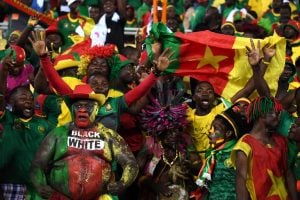This article is more than 7 years old
Which global soccer leagues are represented?

The 2017 Africa Cup of Nations (AFCON, or CAN), hosted by Gabon, gathers 16 African national soccer teams and 368 players. Only three of the players are not contracted to a soccer club: the other 365 play for a total of 255 clubs, in 63 different leagues all over the world.
The French national soccer league is the best represented at 2017's AFCON, with 57 players, followed by England with 32 players, then by 19 athletes of the Portuguese league. The Spanish and Turkish leagues are jointly in 4th position, with 18 players taking part in the cup each. Tunisia’s is the best represented African league at AFCON, with 17 players.
Which team has the most national league players?
With 14 athletes, Tunisia has the highest number of players from its local league playing in its AFCON team. Egypt follows with 12 players, then comes Zimbabwe (7) and the Democratic Republic of Congo (5). Guinea-Bissau is the only team in the Cup of Nations not to have called up players from its local league.
Which club is best represented?
Egyptian club Al Ahly claims the top spot with seven players. Six players from the TP Mazembe club in the DRC are taking part in AFCON.
Lille (France), the Sporting Star of the Sahel (Tunisia), the Sporting Hope of Tunis (Tunisia) and Zamalek (Egypt) have all sent five players. Finally, the club of Angers, in France, has four.
Where do the 16 coaches hail from?
Out of the 16 teams competing in Gabon, only four have chosen local soccer coaches: the Lions of Senegal (Aliou Cisse), the Leopards of DRC (Florent Ibenge), Guinea-Bissau (Baciro Cande) as well as Zimbabwe’s team (Kalisto Pasuwa).
France, with four coaches, counts the highest number of coaches at the AFCON. Claude Le Roy, Togo’s coach, is a cup regular: he won the competition in 1988 with the Cameroonian team. Then follows Herve Renard at the head of the Moroccan team, double winner of the 2012 AFCON with Zambia and Ivory Coast in 2015.
Finally, Alain Giresse is directing Mali, while Michel Dussuyer leads Cote d'Ivoire in the competition.
Which teams have won the cup before?
Half of the 16 teams have won the continental trophy at least once before. The Egyptian team is the most decorated with 7 victories: in 1957, 1959, 1986, 1998, 2006, 2008 and 2010.
The Pharaohs are followed by two fourfold winners: Ghana (1963, 1965, 1978 and 1982) and Cameroon (1984, 1988, 2000, 2002). Then follows Cote d'Ivoire (1992, 2015) and the DRC (1968, 1974), while Morocco (1976), Tunisia (2004) and Algeria (1990) have each taken the cup home once before.

Source: CAF statistics
Translated by Julie Bourdin


Add new comment